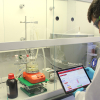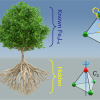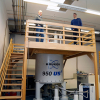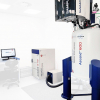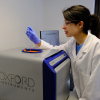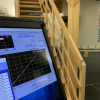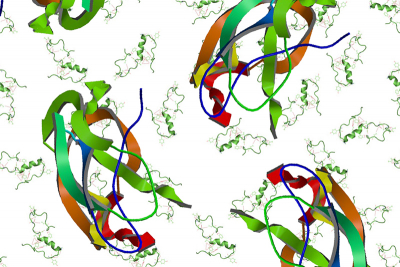
MIT researchers have developed a way to dramatically enhance the sensitivity of nuclear magnetic resonance spectroscopy (NMR). Using this new method, scientists should be able to analyse in mere minutes structures that would previously have taken years to decipher, says Robert Griffin, the Arthur Amos Noyes Professor of Chemistry. The new approach, which relies on short pulses of microwave power, could allow researchers to determine structures for many complex proteins that have been difficult to study until now.
“This technique should open extensive new areas of chemical, biological, materials and medical science which are presently inaccessible”, says Griffin, the senior author of the study. MIT postdoc Kong Ooi Tan is the lead author of the paper, which was published in Science Advances. Former MIT postdocs Chen Yang and Guinevere Mathies, and Ralph Weber of Bruker BioSpin Corporation are also authors of the paper.
The sensitivity of NMR depends on the atoms’ polarisation. The greater the polarisation, the greater sensitivity that can be achieved. Typically, researchers try to increase the polarisation of their samples by applying a stronger magnetic field, up to 35 Tesla. Another approach, which Griffin and Richard Temkin of MIT’s Plasma Science and Fusion Center have been developing over the past 25 years, further enhances the polarisation using dynamic nuclear polarisation (DNP). This technique involves transferring polarisation from the unpaired electrons of free radicals to hydrogen, carbon, nitrogen or phosphorus nuclei in the sample being studied.
DNP is usually performed by continuously irradiating the sample with high-frequency microwaves, using a gyrotron. This improves NMR sensitivity by about 100-fold. However, this method requires a great deal of power and does not work well at higher magnetic fields that could offer even greater resolution improvements. To overcome that problem, the MIT team came up with a way to deliver short pulses of microwave radiation, instead of continuous microwave exposure. By delivering these pulses at a specific frequency, they were able to enhance polarisation by a factor of up to 200. This is similar to the improvement achieved with traditional DNP, but it requires only 7 % of the power, and unlike traditional DNP, it can be implemented at higher magnetic fields.
“We can transfer the polarisation in a very efficient way, through efficient use of microwave irradiation”, Tan says. “With continuous-wave irradiation, you just blast microwave power, and you have no control over phases or pulse length.”
With this improvement in sensitivity, samples that would previously have taken nearly 110 years to analyse could be studied in a single day, the researchers say. One major area of interest is the amyloid beta protein that accumulates in the brains of Alzheimer’s patients. The researchers also plan to study a variety of membrane-bound proteins, such as ion channels and rhodopsins. Because the sensitivity is so great, this method can yield useful data from a much smaller sample size, which could make it easier to study proteins that are difficult to obtain in large quantities.



